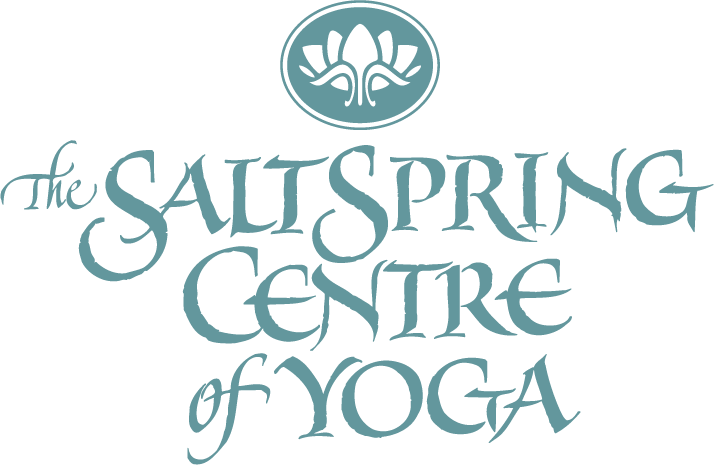Stay Cool, Calm and Hydrated this Summer
During the summer season the qualities of ‘pitta dosha,’ which are hot, light and dry, are clearly obvious in the weather. The sun shines more often; the hours of daylight are longer; the earth dries out more quickly. No matter which dosha is predominant in our nature, we all notice the increase of these pitta qualities also in our bodies, minds and emotions during the hot season.
We naturally search out cooling lakes and streams to absorb the skin’s heat; we are drawn to eating cooling coconut, juicy melons, and cucumbers; we crave liquids – water, green drinks, cooling herbal teas. To keep our pitta in balance at this time of year, we are naturally drawn to foods and activities that are cooling, moist, heavy and oily.
The first step in staying balanced is to be on the lookout for signs of increase in your predominant doshas (your prakruti) and in the dosha that predominates during the time of day, the season and the stage of life you are in. Be aware of signs of increased pitta dosha, the only one that carries the hot quality:
- fever or inflammation
- sensitivity to heat, or feeling flushed
- occasional heartburn or acid reflux
- skin rashes and eruptions such as boils and acne
- loose stools or more frequent bowel movements
- yellow or green coating on the tongue
- unusual lethargy
- low blood sugar
- Irritability, intensity, intolerance or impatience
- overworking or burning the candle at both ends
- excessive sweating and
- difficulty falling asleep.
Whether you are pitta predominant or just sensitive to the change of season, there are numerous life-style, dietary, and exercise modifications you can make to be more comfortable, and to ward off excessive dryness when the autumn winds start to blow.
Changes to your Diet
- Choose juicy seasonal fruits, like watermelon, cantaloupe, blueberries, plums, nectarines & peaches.
- Eat more foods that are sweet, bitter, astringent / cool and moist – such as salads, steamed vegetables, fresh fruits. Coconut is especially refreshing during summer!
- Reduce hot, spicy, heavy foods such as onion and garlic, coffee, salsa and spicy foods, as well as heavy protein and nuts. The sour and salty tastes also increase pitta, so go easy on them.
- Limit dry foods such as chips and rice cakes; the weather provides plenty of vata dryness for the system.
- Include more moist, bitter and astringent vegetables like summer squash, dark leafy greens (collards, kale) and asparagus in your evening stir-fry.
- Digestive spices like cumin, coriander, fennel and turmeric are helpful to cool and support the health of the digestive microbiome.
Increase hydration
- Sip 2-3 cups of cool or room temperature water first thing, with a squeeze of lemon and 1-2 T. aloe vera gel or juice for a cooling effect.
- Take coconut water in the afternoon to keep cool and hydrated.
- Prepare a green drink with fresh cilantro, mint, spinach, kale and/or wheat grass. Green drinks can include any dark leafy greens and herbs, as well as watery summer squash and fennel. Blend quickly with water and season with ginger, turmeric, coriander, or any favorite spices. It’s easy to digest, encourages detoxification and provides absorbable vitamins, minerals and enzymes. Many people like to dilute the drink with more water, or you can enjoy it as a quick, short shot!
- Drink herbal teas such as mint, hibiscus, chamomile, dandelion and chicory.
Modify your Daily Routines (Dinacharya)
- Self massage with sunflower, coconut oil or a combination of the two.
- Plan to exercise in the cool of the morning or evening hours, never in the heat of a summer’s day. Always avoid excessive activity during midday heat, as it can be draining and lead to exhaustion and heat stroke.
- Practice asana in a slow and disciplined fashion; no need to generate excess heat with a vigorous practice. You may think of other activities to which this principle applies.
- Breathe slowly in and out through the left nostril. With your right thumb, hold your right nostril closed. Pause at the inhale and exhale. Or practice shitali or sitkare; all these practices are cooling and calming.
- Do not skip meals. You may choose smaller breakfast and dinners, but do enjoy your relaxing main meal before 2 pm.
- Carve out time each day to rest; slow the pace of life enough to take breaks – meditate, chant, sing or walk along the river for an hour.
- Avoid pushing yourself. Even if you can’t take a vacation, you may be able to approach your work life with a calm, relaxing attitude – a boon to yourself, as well as your co-workers.
Food, drink and lifestyle practices all contribute to our sense of well-being. Living in tune with the natural cycle of the seasons means that we gently modify what we do and how we do it as life unfolds. While maintaining a regular pattern to our lives, at the same time we gradually adjust the specifics of each day, while taking into account the weather, our stage of life, our prakruti, the season, the kind of work we’re engaged in, as well as the state of our relationships.
Bringing new awareness to all these factors in our life, of how they support and balance each other, allows us to make the choices in each moment that support our on-going health and wellness. The slow, relaxing pace of summer is actually healthy for us; so go ahead, make a batch of iced hibiscus/mint tea, take time out for a swim this afternoon, have watermelon for supper . . . enjoy and be healthy all season long!
By Pratibha Queen

Pratibha Queen is an Ashtanga Yoga instructor and Ayurvedic practitioner who lives in Santa Cruz. She is a member of DSS who attends Salt Spring Centre of Yoga retreats on a regular basis. All quotes above are from the writings of Baba Hari Dass.

